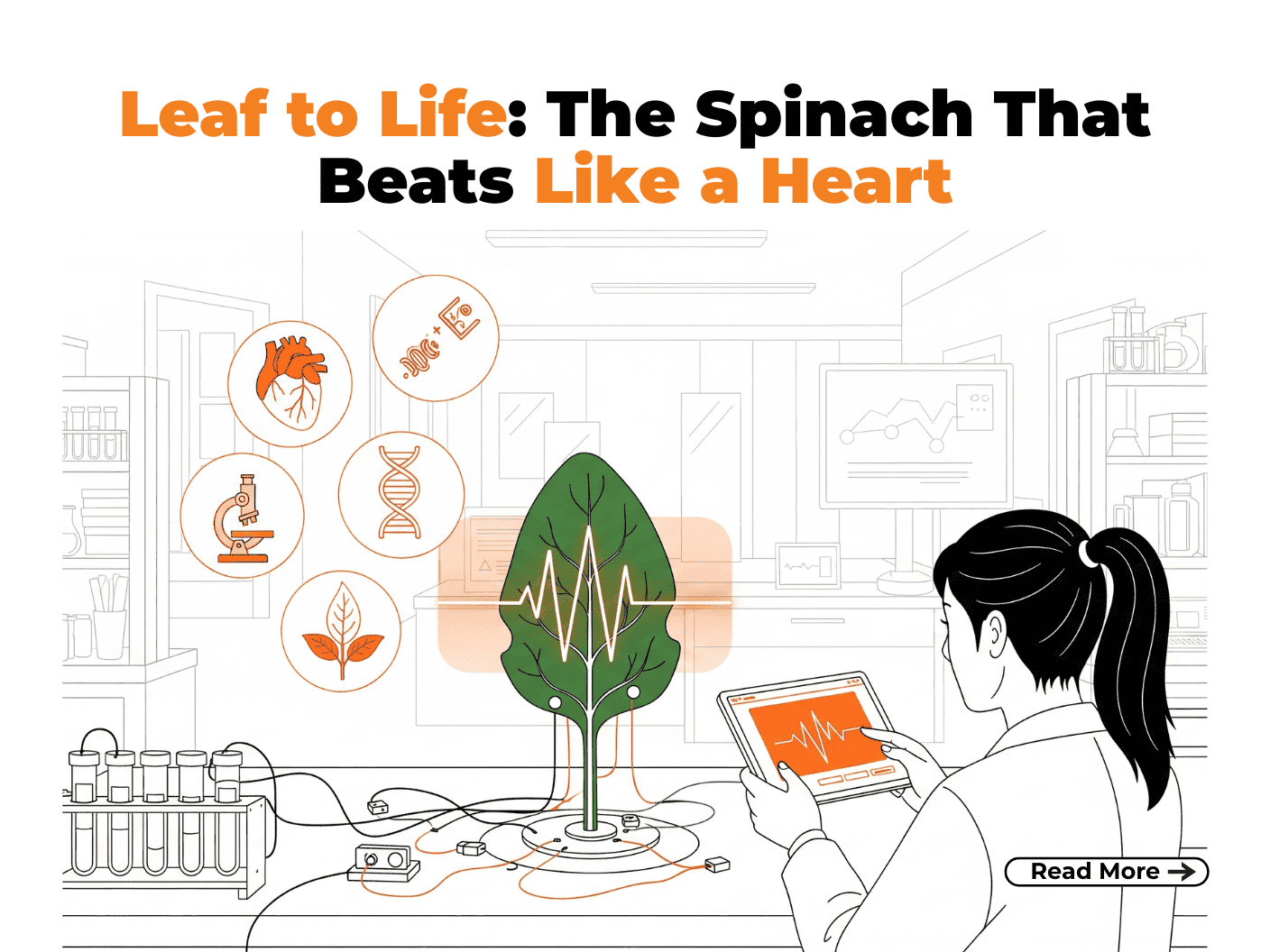- Why Choosing the Right Course Matters?
- Emerging Trends in Media and Communication
- Digital Tools and Technologies You’ll Learn
- Top Skills You’ll Develop in B.A. Journalism and Mass Communication
- Industry Challenges and How to Overcome Them?
- Internship & Project Opportunities
- Alumni Success Stories
- How to Maximize Your Career After B.A. Journalism and Mass Communication?
- Higher Studies and Global Certifications After B.A. Journalism and Mass Communication
- Scholarships, Grants, and Financial Aid for Journalism and Mass Communication Students
- Conclusion
- Frequently Asked Questions (FAQs)
Why Choosing the Right Course Matters?
Choosing the right course after school is one of the most important decisions in a student’s life. It determines not only the academic path but also the professional journey that follows. For those passionate about storytelling, social issues, and the power of information, the B.A. Journalism and Mass Communication open doors to an exciting and impactful career.
This programme is designed for creative thinkers who want to influence society through news, media, advertising, digital content, and public relations. A journalism degree offers numerous benefits, including exposure to real-world communication practices, networking with professionals, and building analytical and presentation skills.
The communication studies scope is vast — from traditional journalism and broadcasting to emerging roles in digital media strategy, content creation, and corporate communications. Students not only learn to report, write, and edit but also to analyze information, understand audience psychology, and use media to inform, entertain, and inspire.
| Did you know?
The leading media giants like The Times of India, Hindustan Times, NDTV, BBC, and Reuters, along with digital platforms like The Quint and Scroll.in, have recruited graduates from the B.A. (Journalism & Mass Communication) programme. |
Emerging Trends in Media and Communication
The world of media is evolving at lightning speed. From print and radio to social media and streaming platforms, the trends in journalism today are shaped by technology, audience behavior, and global connectivity.
One of the most defining transformations is the digital media evolution — the shift from traditional newsrooms to digital-first platforms. Journalists are no longer confined to newspapers or television; they now tell stories through podcasts, YouTube channels, online magazines, and social media reels.
The communication industry’s future is also being shaped by data-driven storytelling, artificial intelligence in newsrooms, and immersive technologies like AR/VR. Future journalists will need to combine creativity with digital literacy, ethics, and cultural awareness to navigate this dynamic landscape.
Universities today, including leading institutions like Lovely Professional University, are integrating these global trends into their curriculum to prepare students for tomorrow’s media world.
| Did you know?
Every B.A. Journalism and Mass Communication students complete a 45-day mandatory internship during their second year — gaining real-world newsroom experience in top media organizations, TV channels, radio stations, and PR firms. |
Digital Tools and Technologies You’ll Learn
In modern journalism, understanding digital tools is as essential as writing a compelling story. Students pursuing a B.A. Journalism and Mass Communication courses are trained to use a range of digital journalism tools and platforms.
They gain hands-on experience with media production technology such as video editing suites, sound recording systems, and digital publishing platforms. From learning Adobe Premiere Pro and Final Cut Pro for editing to Canva and Photoshop for visual storytelling, these journalism software skills make students industry-ready.
Additionally, students explore online content management systems, newsroom automation tools, social media analytics, and data visualization techniques that help them communicate effectively in a multimedia world.
Top Skills You’ll Develop in B.A. Journalism and Mass Communication
A successful journalist is both a thinker and a communicator. Through the B.A. Journalism and Mass Communication course, students develop a wide array of journalism skills and communication skills that go beyond writing and reporting.
Core B.A. Journalism and Mass Communication course skills include critical thinking, research, interviewing, storytelling, editing, and content production. Students also learn soft skills such as teamwork, leadership, and adaptability — crucial traits in today’s fast-paced media environment.
Moreover, they become adept at analyzing audience feedback, managing time-sensitive assignments, and presenting content in visually appealing formats. These competencies enable graduates to succeed in diverse roles such as reporters, editors, anchors, PR specialists, and digital marketers.
| Did you know?
The Journalism & Mass Communication School offers newsroom simulation labs, broadcast studios, editing suites, photography and videography labs, and access to extensive digital archives and libraries for research and production work. |
Industry Challenges and How to Overcome Them?
The field of journalism and mass communication is exciting but not without its complexities. Today’s professionals face numerous journalism challenges, from the rapid spread of misinformation to the ethical dilemmas of digital reporting.
One of the biggest challenges in the industry is maintaining credibility in an era of “clickbait” and “fake news.” As competition for audience attention grows, journalists often face pressure to publish first rather than publish right. This rush can compromise accuracy and trust. The solution lies in developing strong media ethics — verifying sources, cross-checking facts, and maintaining transparency with audiences.
Another challenge is the decline of traditional media revenue and the rise of digital-first models. Journalists now need to be skilled in multimedia storytelling — writing articles, shooting videos, editing content, and promoting stories on social media platforms. Adapting to this multi-role expectation is essential for staying relevant.
Overcoming communication barriers is another vital aspect. In a globalized world, communicators must engage with audiences across languages, cultures, and belief systems. Misinterpretations can easily arise from cultural differences, leading to misinformation or bias. To overcome this, professionals should practice empathy, active listening, and cross-cultural awareness.
The constant evolution of technology also introduces new ethical concerns — from using AI-generated content responsibly to respecting data privacy. Journalists must be lifelong learners, ready to adapt to the next technological shift while maintaining integrity and human perspective in their storytelling.
Finally, mental health challenges in media careers, such as stress and burnout due to demanding deadlines, must also be addressed. Universities like Lovely Professional University emphasize training in time management, ethical decision-making, and professional well-being to help students face these industry realities with confidence and resilience.
| Did you know?
B.A. Journalism and Mass Communication students recently led a ₹2.5 lakh campaign for an Ayurvedic brand, producing over 80+ professional ad films, giving them hands-on experience in brand communication and creative media production. |
Internship & Project Opportunities
The media industry values one thing above all — experience. That’s why practical exposure is a cornerstone of every strong B.A. Journalism and Mass Communication curriculum. Students gain firsthand knowledge of how newsrooms, studios, and production houses operate through journalism internships and collaborative projects.
Top universities maintain partnerships with reputed media organizations such as The Times Group, NDTV, CNN-News18, Doordarshan, Red FM, and Zee Media, among others. During these internships, students experience the real-world dynamics of media — working under deadlines, handling live shoots, coordinating with editors, and interviewing public figures.
Beyond internships, the programme involves several mass communication projects designed to simulate professional challenges. Students may create investigative documentaries, produce campus radio shows, design media campaigns for social causes, or develop corporate communication strategies for real clients. These projects enhance their understanding of public engagement and message design.
At Lovely Professional University, for instance, learners benefit from an extensive ecosystem of B.A. Journalism and Mass Communication practical learning. The university provides state-of-the-art TV and radio studios, editing suites, digital labs, and production rooms where students create real-time media content.
They also participate in on-campus media initiatives such as LPU TV, campus newspaper production, and digital storytelling workshops led by industry veterans. This hands-on approach ensures that students graduate not just with theoretical understanding but with a professional portfolio ready for the job market.
Moreover, LPU’s global partnerships open opportunities for international internships and cultural exchange programmes, allowing students to understand media landscapes across countries — an invaluable advantage in today’s interconnected world.
Alumni Success Stories
The real impact of a journalism education is best reflected through the achievements of its graduates. Across India and beyond, journalism alumni success stories serve as powerful examples of how creative minds can shape the future of communication.
At Lovely Professional University (LPU), BAJMC students have consistently demonstrated excellence, leadership, and innovation in diverse spheres of media, journalism, and public communication. Their accomplishments reflect the university’s commitment to fostering both academic brilliance and real-world competence.
Among many inspiring media career stories, several stand out for their remarkable achievements:
- Akansha Patra, a dynamic BAJMC student, made LPU proud by serving as the keynote speaker at the 14th Indian Students Parliament in Pune. Her insights on youth leadership and responsible journalism earned widespread appreciation, showcasing the power of informed communication.
- Tarmika Nagpal, another promising BAJMC student, also served as the keynote speaker at the 13th Indian Students’ Parliament in Pune. Representing the voice of future journalists, she emphasized the need for ethical media and the transformative role of communication in democracy.
- Keren Afrael Nanyaro, an exceptionally talented BAJMC student, achieved 1st position in News Anchoring at the UDAAN Media Fest, Chitkara University. Her confident presentation and professional delivery highlighted the effectiveness of LPU’s practical media training.
- Harshit Dhawan, a creative photography enthusiast from the same programme, earned 2nd position in Photography at the UDAAN Media Fest, Chitkara University. His visual storytelling and artistic perspective reflected the innovative spirit that LPU nurtures among its media students.
These communication graduates’ achievements highlight how the BAJMC programme at Lovely Professional University not only prepares students for careers but also inspires them to become leaders and change-makers in the communication landscape.
Beyond competitions and speaking engagements, LPU’s journalism alumni have gone on to work with top media houses, digital agencies, film production companies, and global communication firms. Many have taken entrepreneurial paths, founding their own media startups and creative agencies, thereby contributing meaningfully to the ever-evolving media ecosystem.
What makes these successes even more impressive is the strong support system that LPU provides — including mentorship from experienced faculty, industry-integrated learning, and a vibrant campus media culture. The university’s emphasis on practical exposure ensures that every student has the opportunity to translate classroom learning into real-world achievements.
From international media competitions to national leadership platforms, LPU’s journalism students continue to prove that passion, skill, and education can together craft stories that inspire the nation.
| Did you know?
Faculty members at the School of Journalism and Mass Communication include former journalists, editors, and media researchers who’ve worked with top media houses and earned national-level journalism awards. |
How to Maximize Your Career After B.A. Journalism and Mass Communication?
To build a successful career after graduation, students must combine their education with practical experience and continuous upskilling. Some essential journalism career tips include building a personal portfolio, networking with industry professionals, and staying updated with emerging tools and technologies.
The potential for mass communication career growth is immense. Graduates can pursue opportunities in news media, corporate communication, content creation, digital marketing, and academia. With a blend of creativity, persistence, and professionalism, one can reach top positions in the media industry.
There are numerous B.A. Journalism and Mass Communication opportunities for those who are proactive and passionate about communication, from becoming correspondents and editors to film critics, content strategists, and public relations experts.
| Did you know?
Students gain real-world exposure through news production, documentary filmmaking, investigative reporting, and multimedia storytelling—skills essential for thriving in modern media landscapes. |
Higher Studies and Global Certifications After B.A. Journalism and Mass Communication
After completing a B.A. Journalism and Mass Communication, students have a multitude of options for further education and specialization. Pursuing higher studies after B.A. Journalism and Mass Communication allows graduates to refine their expertise in specific areas of media, explore new research domains, and strengthen their employability on a global scale.
Postgraduate Options in India and Abroad
Students may choose to pursue an M.A. in Journalism and Mass Communication, M.A. in Public Relations, M.A. in Advertising and Marketing Communication, or even specialized programmes such as M.Sc. in Digital Media or M.A. in Film and Television Studies.
Many universities abroad also offer niche programmes like Global Media and Communication (University of Warwick, UK), International Journalism (Cardiff University, UK), and Digital Communication and Media Arts (DePaul University, USA). These international programmes provide exposure to advanced media practices, multicultural perspectives, and global newsroom operations.
Professional Certifications
In addition to formal degrees, short-term journalism certifications can add significant value to a student’s professional profile. Certifications in digital storytelling, media law and ethics, data journalism, photojournalism, and online content creation are highly valued in the industry.
Globally recognized programmes offered by platforms such as Google News Initiative, Coursera, edX, and Reuters Institute for the Study of Journalism enable students to develop in-demand digital and investigative reporting skills.
For those interested in corporate communication or advertising, certifications from Public Relations Society of America (PRSA) or Chartered Institute of Public Relations (CIPR, UK) provide international credibility.
Research and Doctoral Studies
Graduates inclined towards academia can pursue Ph.D. programmes in Media Studies, Communication Research, or Digital Journalism. These programmes allow scholars to explore media influence, audience behavior, and ethical frameworks in journalism — contributing to the global pool of communication research.
Global Exposure Through Lovely Professional University
Lovely Professional University (LPU) supports global exposure through credit transfer programmes, enabling students to study part of their degree at international partner universities. LPU also offers guidance for students aspiring to pursue postgraduate studies abroad through workshops, mentorship, and tie-ups with global institutions.
In essence, higher studies and certifications after B.A. Journalism and Mass Communication not only strengthen your knowledge base but also help you adapt to the rapidly changing media ecosystem — preparing you to thrive in international newsrooms, production houses, research institutes, and communication agencies.
Scholarships, Grants, and Financial Aid for Journalism and Mass Communication Students
Education in journalism and mass communication is an investment in creativity and knowledge — and several journalism scholarships and communication student grants make it easier for passionate learners to pursue this path without financial stress.
Scholarships at Lovely Professional University
Lovely Professional University (LPU) has one of India’s most comprehensive scholarship systems. Students enrolled in the B.A. Journalism and Mass Communication programme can avail B.A. Journalism and Mass Communication financial aid through multiple channels:
- LPUNEST (LPU National Entrance and Scholarship Test): Students are awarded scholarships based on their performance in LPUNEST. High scorers can receive substantial tuition fee waivers throughout their course.
- Academic Merit-Based Scholarships: Outstanding students with strong academic records in their qualifying examinations are eligible for scholarships covering a percentage of tuition fees.
- Financial Aid for Sports, Cultural, and Co-Curricular Excellence: LPU encourages talent beyond academics — journalism students with achievements in cultural or media-related competitions may qualify for additional financial support.
- Special Scholarships for Defence Personnel, Single Girl Child, and Orphans: To promote inclusivity and equal opportunity, LPU provides reserved scholarship schemes for deserving candidates under these categories.
National and International Grants
Apart from institutional support, students can apply for national journalism scholarships such as:
- Raja Rammohun Roy National Award for Journalism Students
- Jitendra Bhargava Memorial Scholarship for Budding Journalists
- India Today Media Scholarship programme
- Pradeep Soundararajan Memorial Scholarship in Media Ethics
For those planning to study abroad, several international communication student grants are available:
- Chevening Scholarships (UK) for aspiring media professionals pursuing master’s degrees.
- Fulbright-Nehru Fellowship (USA) for Indian students with a passion for media research and cross-cultural storytelling.
- Erasmus+ Media Exchange Grants (EU) for students interested in international collaborations and study-abroad projects.
Grants for Research and Innovation
Many organizations, such as UNESCO, Reuters Foundation, and The Knight Center for Journalism in the Americas, offer media innovation grants and journalism fellowships for students who wish to explore investigative reporting, digital media innovation, or community storytelling projects.
Why Scholarships Matter
Access to scholarships and grants ensures that financial limitations never stand in the way of ambition. For a creative discipline like journalism, where the learning experience is enhanced through exposure, internships, and practical projects, financial support can help students focus on innovation rather than expenses.
Lovely Professional University continues to empower students by bridging this gap — ensuring every aspiring communicator, regardless of background, can pursue their dream of becoming a responsible and impactful storyteller.
| Did you know?
Journalism students actively participate in media festivals, workshops, student-run news portals, and industry visits, ensuring a balance between professional learning and creative exploration. |
Conclusion
In this journalism course summary, we’ve explored how the B.A. Journalism and Mass Communication programme equips students with essential skills for a fast-changing media world.
A career in mass communication is ideal for those who are curious, creative, and socially aware. With technology advancing and global audiences expanding, the demand for skilled communicators is higher than ever.
So, why choose B.A. Journalism and Mass Communication? Because it offers the perfect blend of creativity, critical thinking, and professional opportunity. And when pursued from a reputed institution like Lovely Professional University, students benefit from global exposure, experienced faculty, modern studios, and strong industry linkages that prepare them for success in every field of communication.
Frequently Asked Questions (FAQs)
Q1. What are the global career prospects?
A. With the rise of international media organizations, global journalism opportunities are growing rapidly, allowing graduates to work worldwide.
Q2. Is digital media covered in the curriculum?
A. Yes, modern digital journalism and social media management are integral components of today’s communication programmes.
Q3. Are scholarships available?
A. Yes, universities like Lovely Professional University offer several merit-based and LPUNEST-based scholarships for eligible students.
Q4. How can I apply for admission to LPU?
A. Candidates can apply online through the LPU official admission portal by registering for LPUNEST, uploading required documents, and completing the payment process.
Q5. Why should I choose LPU for B.A. Journalism and Mass Communication?
A. Because LPU combines academic rigor with hands-on training, global exposure, and career support — ensuring you graduate as a confident, skilled, and industry-ready media professional




![Is B.Sc. Information Technology [Lateral Entry] the Right Course for You? Is B.Sc. Information Technology [Lateral Entry] the Right Course for You?](https://www.lpu.in/blog/wp-content/uploads/2026/01/Is-B.Sc_.-Information-Technology-Lateral-Entry-the-Right-Course-for-You-218x150.png)









